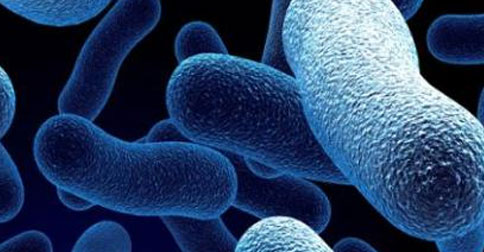Microbiology
The human eye has an amazing focal sight but one with built-in limits. When objects are less than 0.2mm across our eyes are unable to see them. There are many creatures that measures less than our eyesight range .These organisms are identified through a microscope .Identifying such living creature has become integral as these organism has a great interference in human life; both positively and negatively .The study that centers the existence of these microorganisms is called Microbiology, a Greek terminology (micro- small and Bio- life).

Who can graduate in Microbiology
As this is a biological study, therefore students who have completed their twelve grades with pre-medical or biology as majors can take microbiology as a key subject for their graduation or post- graduation studies .In Pakistan, almost all government universities have set up exclusive microbiology departments with world-class faculty where degrees in microbiology are genuinely offered.
Degree Programs:
Admission in microbiology department is not a piece of cake as this is an open merit opportunity where a student has to secure above 75%marks in their intermediate board exams .The university also conducts an aptitude test prior confirming the admission. Generally universities are offering a 4 year BS program with total 124-133 numbers of Credit Hours. A total of 8 semesters are steered to complete the program where each Semester runs for 16-18 weeks. However, some universities are still offering BSC. Honors degree with a period of 3-4 years .The postgraduate plan offers master degree program of 2 years ,MPhil degree program of further two years and finally the PhD degree(with research submission) that is completed within 3-5 years after MPhil.
Objective of study:
The curriculum designed for the Microbiology bachelors and master’s degree will prepare the graduates to learn and relate their knowledge and research with associated fields like including Medicine, Dairy, Poultry, Agriculture and Industry. These professional learners will be able to bring productive outcomes and economic growth through their knowledge. Internship in the microbiology curriculum will be offered to provide hands on experience in the relevant fields .The microbiologist plays a key role in spreading awareness about public health and safety and the establishment of liaison of Microbiologist with society & industry will bring fruitful changes in a nation’s progress.
Curriculum Design:
A microbiology student has to study an array of courses including the general language and Islamic studies. Furthermore the essential microbiology topics include
- Microbial Anatomy & Physiology
- Cell biology
- Bacterial Genetics
- Clinical Bacteriology
- Soil Microbiology
- Epidemiology, Public health and bioethics
- Environment Biotechnology
- Genetic Engineering
- Medical Virology
- Immunobiology
- Food Microbiology
Role of Microbiologist:
A microbiologist is a person who has the right skill to identify the structure, development, growth and exceptional features of micro- organisms and they can relate this knowledge to the specific environment.
- A microbiologist can detect the effect of microbes on plants, animals or other substances.
- Examine physiological, morphological, and histological aspects to classify microorganisms.
- He can deal with the cultures and growth of microbe colonies.
- A microbiologist can identify and apply the attributes of a specific microorganism in drug manufacture or storage.
- The marine and soil microbiologist can demonstrate the effect of microorganisms on soil and water.
- A microbiologist can extract pathogens or helpful bacteria from food ingredients to bring innovation in food technology and nutritional concerns.
- Most significantly recent microbiologists are in constant research to study the contingency of micro-organisms invasion on human cells and tissue and this genetic study is conducted to develop new therapies for terminal illnesses like cancer and HIV.
Scope of Microbiology:
With the ongoing research and awareness of the significance of microorganisms, the scope of microbiology is extending day by day. Following are the areas where microbiologists are chiefly employed
- Pathology Labs
- Pharmaceutical industries
- Chemical industries
- Research
- Consulting Firms
- Veterinary Laboratories
- Dairy product manufacturing and sterilization
- Water or ocean(marine life)
- Food and nutrition based companies
- Education
- Biotechnical engineering oriented firms
- Agriculture
Currently, microbiologists are very busy as microorganisms are dominating almost every field of life. new research and genetic studies are exploring unimaginable facts about these tiny beings .These microbiologists are serving everywhere like they are identifying the microbe causing the pathology while on the other hand some experts are digging the soil to take benefit from soil bacteria .Likewise virus and fungi are under observation to design a life- saving drug thus the scope is increasing swiftly and steadily both in Pakistan an around the globe.
USEFUL LINKS:
https://study.com/academy/lesson/what-is-microbiology-definition-history.html
https://nation.com.pk/national/19-Aug-2016/youngest-pakistani-phd
Farah Hedayat








.gif)


































